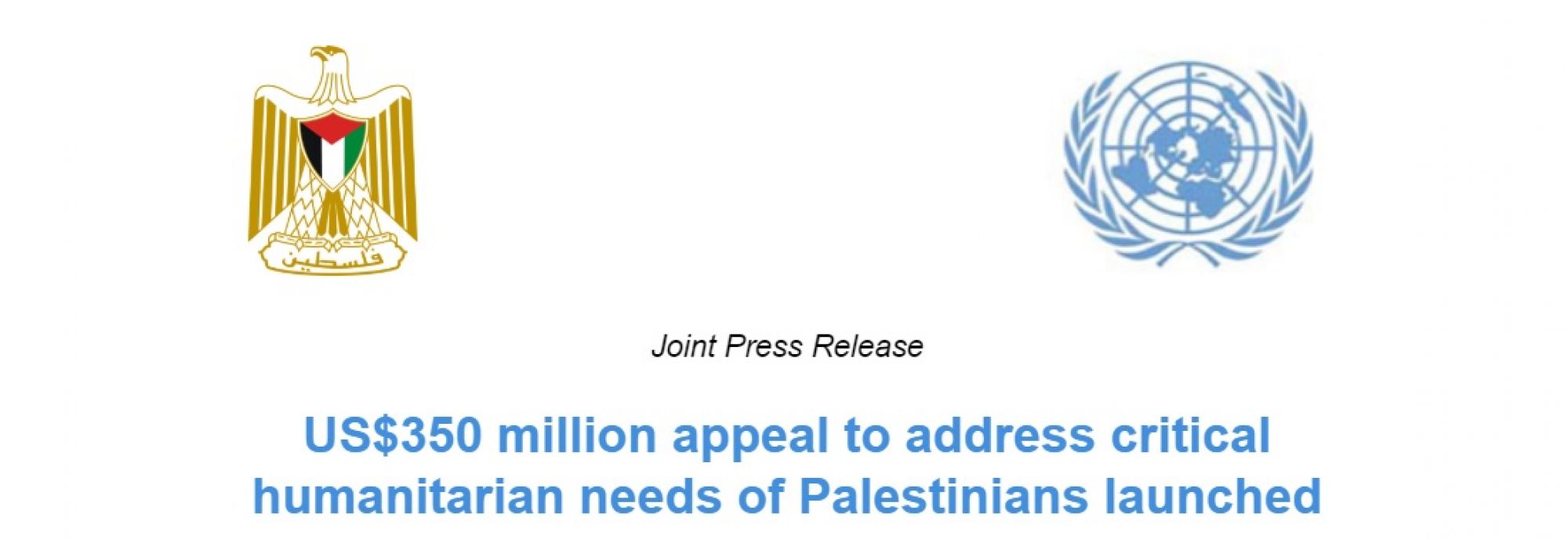
The 2019 HRP appeals for $350 million to provide basic food, protection, health care, shelter, water and sanitation to 1.4 million Palestinians, who have been identified as most in need of humanitarian interventions in the Gaza Strip and the West Bank, including East Jerusalem.
“The humanitarian context in the oPt is still deteriorating due to the Israeli occupation violations in a time of lack of resources and declining funds because of the politicization of the humanitarian aid,” said Minister Al Shaer. “We have a big concern on the rights and services for the poorest and most vulnerable households who are in need of humanitarian interventions.”
“The situation in the oPt continues to deteriorate, preventing Palestinians from accessing health care, clean water and livelihoods, among other needs,” said Mr. McGoldrick. “At the same time, humanitarian actors are facing unprecedented challenges, including record-low funding and a rise in attacks to delegitimize humanitarian action. This year’s plan is a new approach, reflecting what we can realistically accomplish in this highly-constrained context. We recognize that much more assistance is needed, and indeed we can do much more, but we require increased support of the international community.”
The 2019 plan encompasses 203 projects that will be implemented by 88 organizations, including 38 national, 37 international NGOs, and 13 UN agencies. About 77 per cent of the requested funds target Gaza. The already dire humanitarian situation has been aggravated since 30 March 2018 by a massive rise in Palestinian casualties in the context of demonstrations in Gaza. This further compounds the grave humanitarian situation due to Israel’s prolonged blockade, the internal Palestinian political divide, and recurrent escalations of hostilities. In the West Bank, support will focus on vulnerable families in Area C, East Jerusalem and the H2 area of Hebron, where access and planning restrictions, as well as ever-increasing settler violence in a context of settlement expansion, generate humanitarian needs and place many Palestinians at risk of forcible transfer.
“Our plan for 2019 prioritizes assistance for people assessed as being most in need of protection, food, health care, shelter, water and sanitation,” said Mr. McGoldrick. “It enables us to maximize limited funding. But much more is needed, and we stand ready to do more, if funding and operational space are improved.”
“We call upon the international donors' community to help us in securing the requested funds for 2019 in order to maintain the humanitarian interventions and the provision of basic services to the needy families, in particular those living in the Gaza Strip, Area C, East Jerusalem and H2 in Hebron of the West Bank,” Minister Al Shaer concluded.
